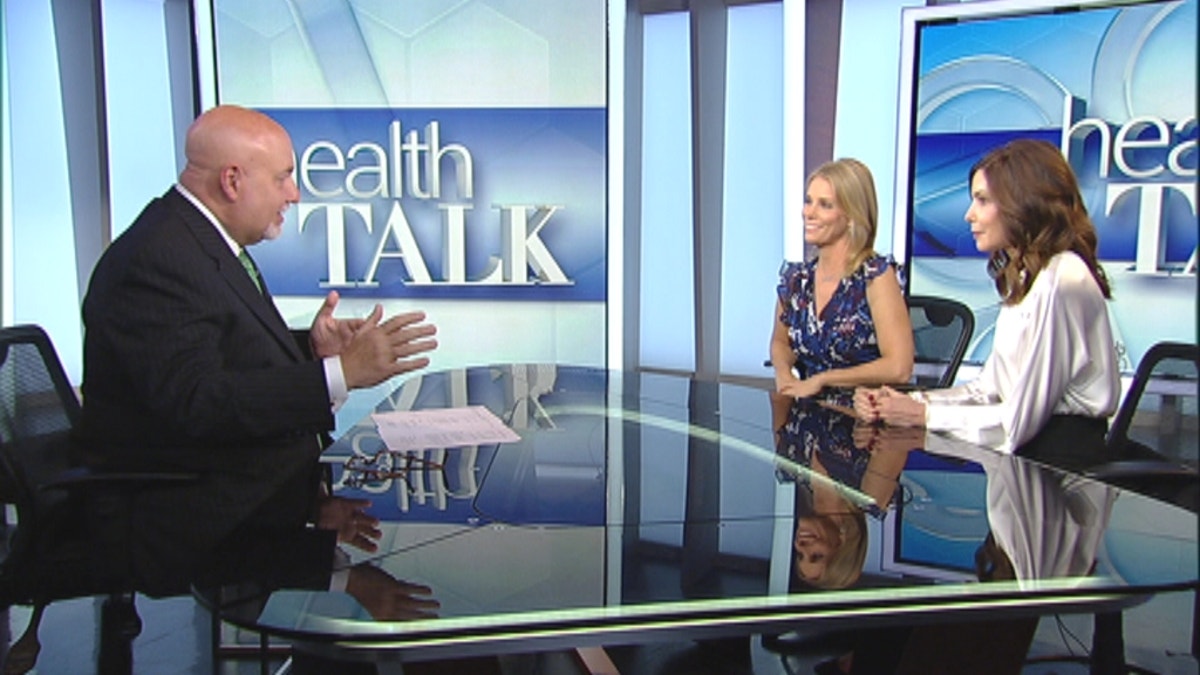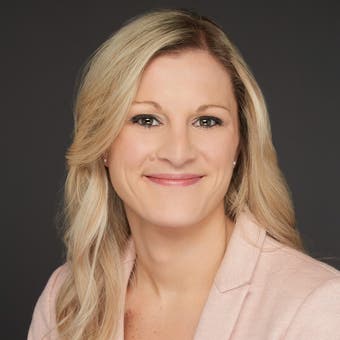It can happen to women in their 40's or 50's, and no one likes to talk about it...
Menopause.
The biological process is defined as the time that marks the end of your menstrual cycles, or after you’ve gone 12 months without a menstrual period, according to the Mayo Clinic.
Additional symptoms often include hot flashes, night sweats, sleep problems, mood changes, weight gain, and thinning hair and dry skin.
Perhaps one of the most uncomfortable menopause symptoms to ask your doctor about is painful sex caused by the condition vulvar and vaginal atrophy, also known as genitourinary syndrome of menopause (GSM). Low estrogen levels after menopause can lead to GSM, which comes with its own slew of bothersome symptoms, like vaginal dryness, itching, dyspareunia, urinary urgency and increased frequency, and urinary tract infections.
To help women start talking more openly and honestly about painful sex due to menopause, actress and "Curb your Enthusiasm" star Cheryl Hines, teamed up with menopause expert, Dr. Marla Shapiro and AMAG pharmaceuticals to launch the campaign ‘Painfully Awkward Conversations.’

"I think a lot of women think that they’re going through something that other people aren’t going through, so they’re embarrassed to bring it up to their friends or to their health care provider," Hines told Fox News. "This campaign is just about saying, its natural and normal, and it’s OK to talk about it."
GSM affects nearly 50 percent of postmenopausal women. The chronic condition is progressive and symptoms are unlikely to resolve without treatment, according to the Mayo Clinic.
"Often women don’t understand that what’s happening in their vagina is related to the loss of estrogen, the loss of sex hormones," Dr. Marla Shapiro, a professor of Family and Community Medicine at the University of Toronto, told Fox News. "What’s happening in both the vagina and the area around the vagina without estrogen is it loses its elasticity and all the fluid and mucus and the vagina becomes very thin and it becomes atrophic."
In terms of treatment, Shapiro said over-the-counter lubricants don’t change what’s happening to the lining of the vulva and vagina, that they are more of a "Band-Aid approach."

"There are many different options that are available now, local therapies both estrogen and non-estrogen therapies," Shapiro said. "Women need to talk to their health care provider in terms of what it’s providing and what it can do for them."
Hines, who said she’s getting ready to start taping the new season of "Curb your Enthusiasm" next month and may even direct an episode herself, isn’t afraid to talk to her doctor and friends about any menopause symptoms she may be experiencing and hopes this campaign can help other women feel the same way too.
"I’m not afraid to ask questions. I’m not afraid to say ‘Is there anything that can be done for this or not?’ I think it’s a very natural part of life," Hines said.









































